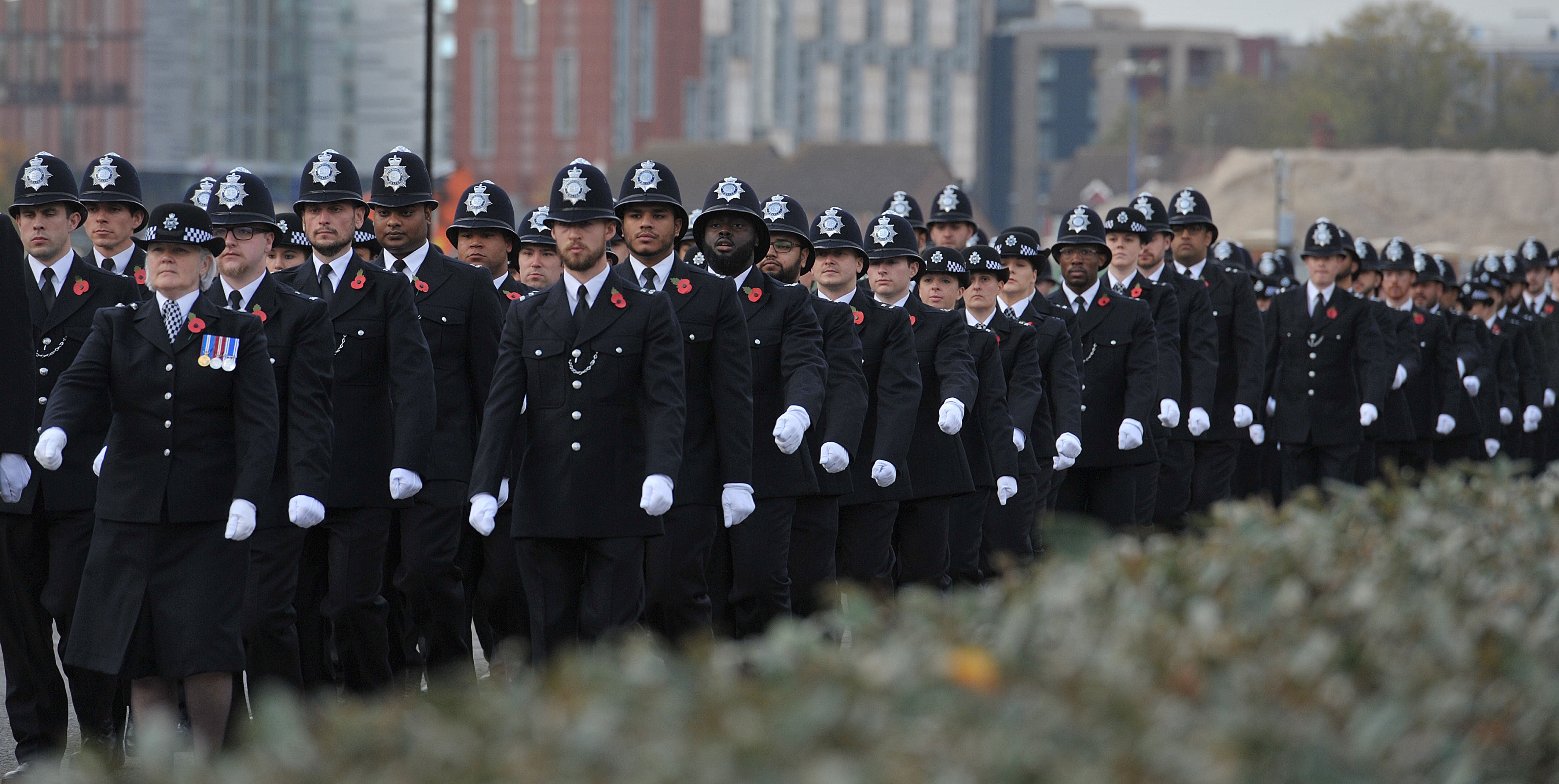Warnings over challenges facing Government plan to hire 20,000 police officers
The Home Office expects to spend £3.6 billion on the recruitment programme up to March 2023.

The Government’s plan to hire 20,000 new police officers by 2023 will “exacerbate pressure” on a criminal justice system which is “already under strain”, Whitehall’s spending watchdog has warned.
The National Audit Office (NAO) said the Government was on track to meet its target for recruiting more officers but that the wider justice system was “struggling to recover” from the coronavirus pandemic.
The Home Office will “need to take account of certain challenges” in order to “maximise the programme’s benefits”, the NAO said, including that the “rapid increase in police officers will exacerbate pressure on a criminal justice system that is already under strain and struggling to recover from the Covid-19 pandemic”.
Government now needs to work closely with policing and the wider criminal justice system to manage the implications of such rapid recruitment
Its report on the progress being made with the jobs campaign also found around a quarter of new recruits in the first year of the programme had previously been Police Community Support Officers (PCSOs), special constables or police staff.
The NAO warned: “While this approach supported police forces to reach their recruitment targets comfortably, PCSO and special constable vacancies may now need to be backfilled to increase visible police presence in the community.”
The Home Office expects to spend £3.6 billion on the recruitment programme up to March 2023, and for the programme to cost a total of £18.5 billion over the next ten years, according to the report.
Describing the project as “well managed”, the NAO said by the end of December 2021, forces had recruited 11,048 officers when it had a target of hiring 12,000 of the 20,000 by March this year.
The remaining 8,000 are expected to be hired in the final year of the programme but the Home Office “accepts this will be more challenging”, the NAO said.
Earlier this month outgoing chief inspector of constabulary Sir Thomas Winsor reiterated warnings that the “sheer magnitude and speed” of the recruitment campaign “inevitably carries risks”, adding that there is a “heightened danger that people unsuited to policing may get through and be recruited”.
Describing vetting as being of “enormous importance”, he told reporters it was “essential” that recruitment and continual monitoring of the police workforce is of the “highest standard”.
Diversity has “slowly improved” during the recruitment campaign, the report said. The proportion of female officers has risen to 34% and the proportion of officers from a minority ethnic background is up to 8%.
The Government initially estimated the extra officers would help cut the number of crimes by “around half a million a year by 2024-25”. But the Home Office “acknowledges its evidence base is weak and highly sensitive to what appear to be optimistic assumptions based on limited evidence”, the NAO said, adding that Covid-19 had changed the nature of crime making it “even more challenging to demonstrate a causal link between changes in crime and police numbers”.
Gareth Davies, the head of the NAO, said: “Government now needs to work closely with policing and the wider criminal justice system to manage the implications of such rapid recruitment.
“It should also provide clarity over future funding arrangements, so that forces are able to plan effectively and develop the capabilities needed for 21st Century policing.”
Home Secretary Priti Patel said the report “rightly highlights the successes” of the “flagship programme”.
Bookmark popover
Removed from bookmarks